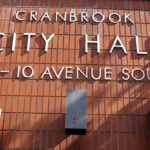Home »

A more sophisticated electrical grid is needed
Letter to the Editor
In order to help adapt to developing Kootenay climate changes, we need a more sophisticated electrical grid that allows autonomous residential/commercial and community power producers to sell their surplus solar, wind, forest biomass and micro hydro energy. This in turn would augment our large hydro generation infrastructure in the face of significantly changing precipitation trends, disappearing glacier water sources, a warming climate and increased electrical demand (e.g. electric transport).
Numerous opportunities are also being missed. One only needs to look south to Washington state and see the phenomenal growth of renewable energy projects creating a wealth of businesses and jobs as a result of a “modern” electrical grid. And lowering the carbon footprint at the same time!
By contrast, as matters currently stand in B.C., the Ministry of Energy, Mines and Petroleum Resources (EMPR), which is responsible for legislative oversight of energy production, only allows small renewable electrical producers to offset their electrical production against their own electrical bills and not to sell any excess through the grid.
It is not the intent of this program to provide a means for bringing their output to the market. The program, called “Net Metering,” is actually a dis-incentive for residents to become involved as a “grass roots” movement in alternative renewable energy. It is no wonder the uptake on this program has been small. As of 2016, Fortis had only 100 participants in its Net Metering program most of whom were producing electricity from residential solar installations.
Also, rather than wanting to encourage the sale of electricity from renewable projects, last year, the EMPR went in the opposite direction and applied to the Utilities Commission to prevent BC Hydro from buying the excess energy from Independent Power Projects. While the EMPR seems determined to block the growth of independent renewable energy systems, the rest of the world, including other parts of Canada, have embraced the concept in line with the growing support for a broadly sourced renewable energy.
On a positive note, both B.C. Hydro and Fortis may be open to change as their statements on environment say they “seek feasible, cost-effective opportunities to decrease greenhouse gas (GHG) emissions and increase renewable energy sources.”
Time to change BC Hydro to ‘B.C. Renewable Energy’ and take an important step towards a greener future. Fortis, Columbia Power, Columbia Basin Trust and Nelson Hydro will undoubtedly continue to follow the path of BC Hydro as directed by the Ministry of Energy, Mines and Petroleum Resources.
Steven Miros,
Deer Park







